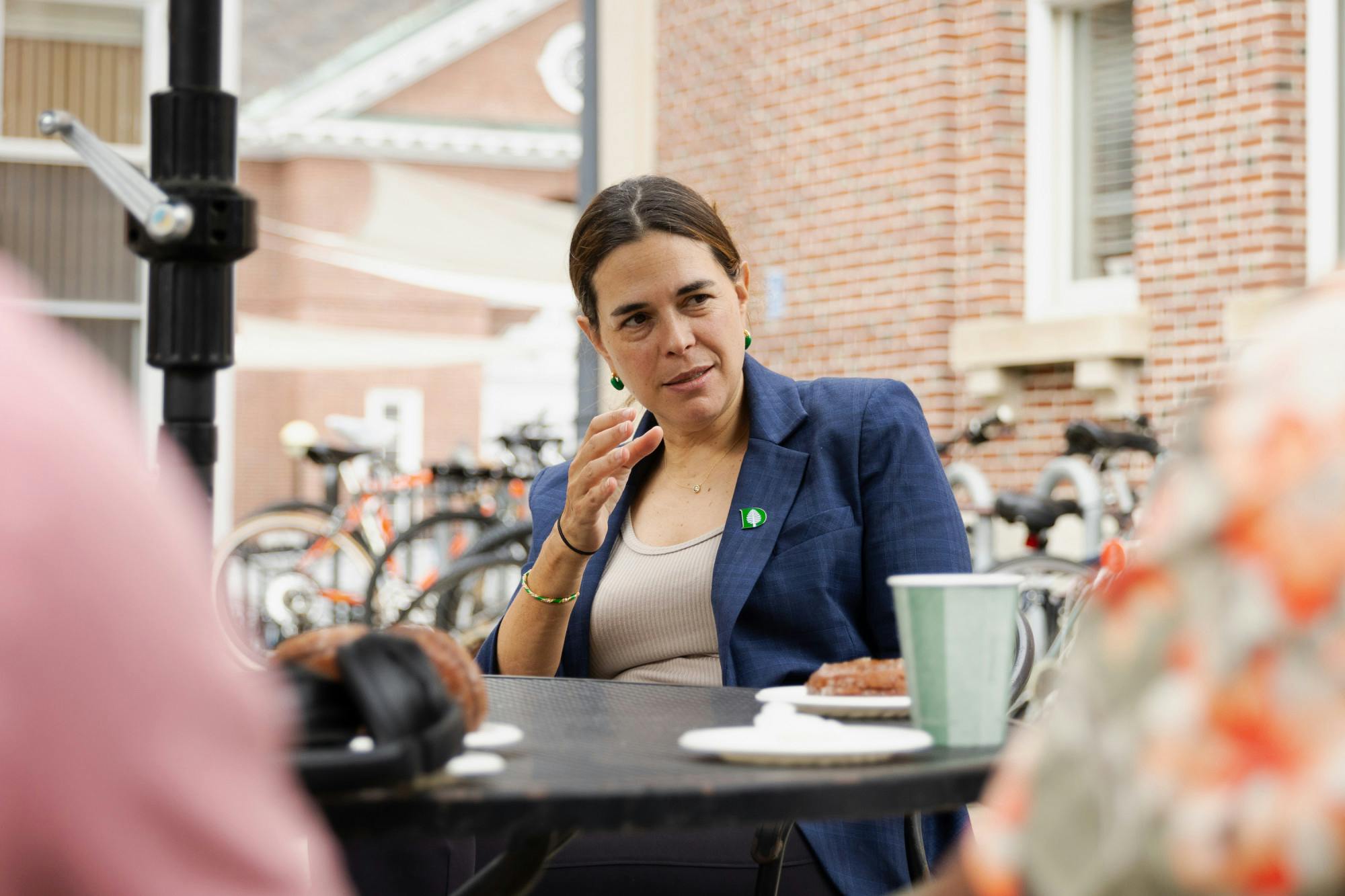In an email to campus this evening, College President Sian Leah Beilock defended her decision to not sign an open letter against federal funding cuts on higher education. She was the sole Ivy League president to abstain.
“Some see any sort of self-reflection at this moment — anything less than all-out battle — as surrender. I disagree,” she wrote.
In the email — with the subject line “Standing Up for Higher Education and Our Values” — Beilock said that she “agree[s] with much of the open letter.” However, she wrote that she “would add a clear acknowledgment that we can do better.”
“Higher-education institutions, especially the most elite among us, are not above reproach,” she wrote. “Not only is trust in higher education at an all-time low, but that trust is hugely polarized, second in polarization only to the U.S. presidency. If we don’t ask ourselves why, we will squander this opportunity to do better. That spirit of self reflection does not, in any way, insulate the government from criticism. It simply gives us an opportunity to look at ourselves and ask where we can be truer to our own ideals.”
She continued to argue that open form letters are “rarely effective tools to make change.”
“I prefer joining action-oriented coalitions, as we have done this past month, as part of two successful Association of American Universities lawsuits focused on National Institutes of Health and Department of Education indirect-cost rates,” she wrote.
Beilock has signed open letters in the past. In 2023, as president-elect, she signed an open letter in support of diversifying the semiconductor workforce, according to the Dartmouth News.
In a follow-up statement to The Dartmouth, College spokesperson Kathryn Kennedy said that the April 22 letter was a different type of open letter than the one Beilock signed in 2023.
“President Beilock does not sign form letters. The semiconductor industry letter featured only seven authors, including President Beilock, who worked together to develop the language. It was not a symbolic form letter signed by hundreds of people, most of whom had no role in its creation,” according to the statement.
Beilock emphasized her commitment to academic freedom and pointed to the College’s institutional restraint policy.
“I believe we can do better by staying focused on what we are: educational institutions, not political organizations, as laid out in Dartmouth’s institutional restraint policy, which preserves our ability to fiercely defend Dartmouth and the academic freedom that drives discovery and makes our institution great,” she wrote.
Her decision to not sign the letter has already garnered national media attention, with an article in NBC News published this evening.
Update Appended (April 23, 8:59 p.m.): This article has been updated to include details about Beilock signing open letters in the past.
Update Appended (April 24, 2:55 p.m.): This article has been updated to include an additional statement from the College.
Kent Friel ‘26 is an executive editor at The Dartmouth.
Charlotte Hampton is the editor-in-chief of The Dartmouth. She hails from New York, N.Y., and is studying government and philosophy at the College.




